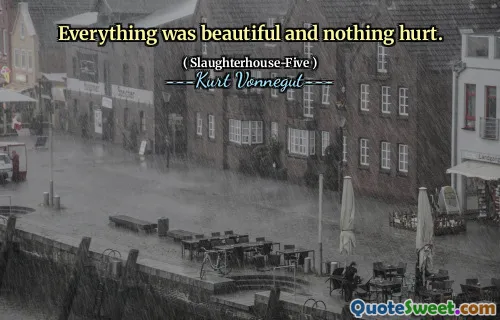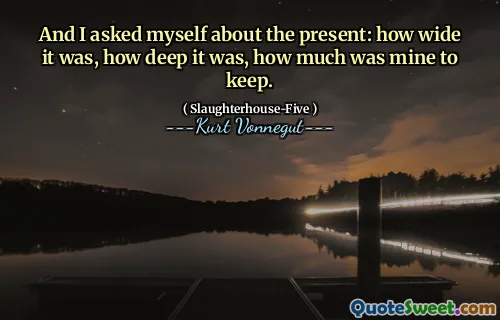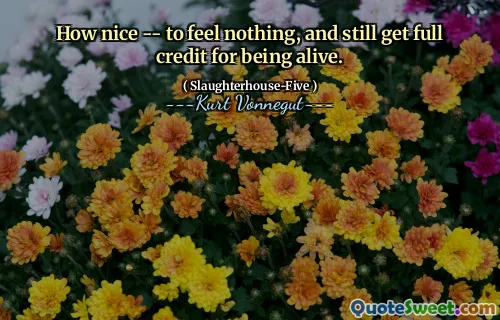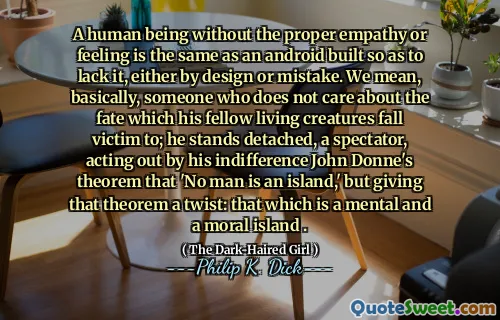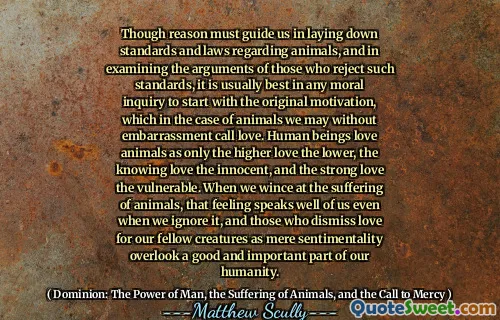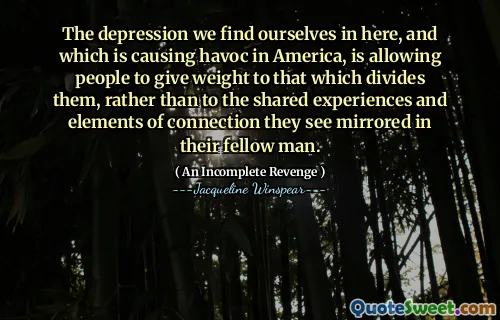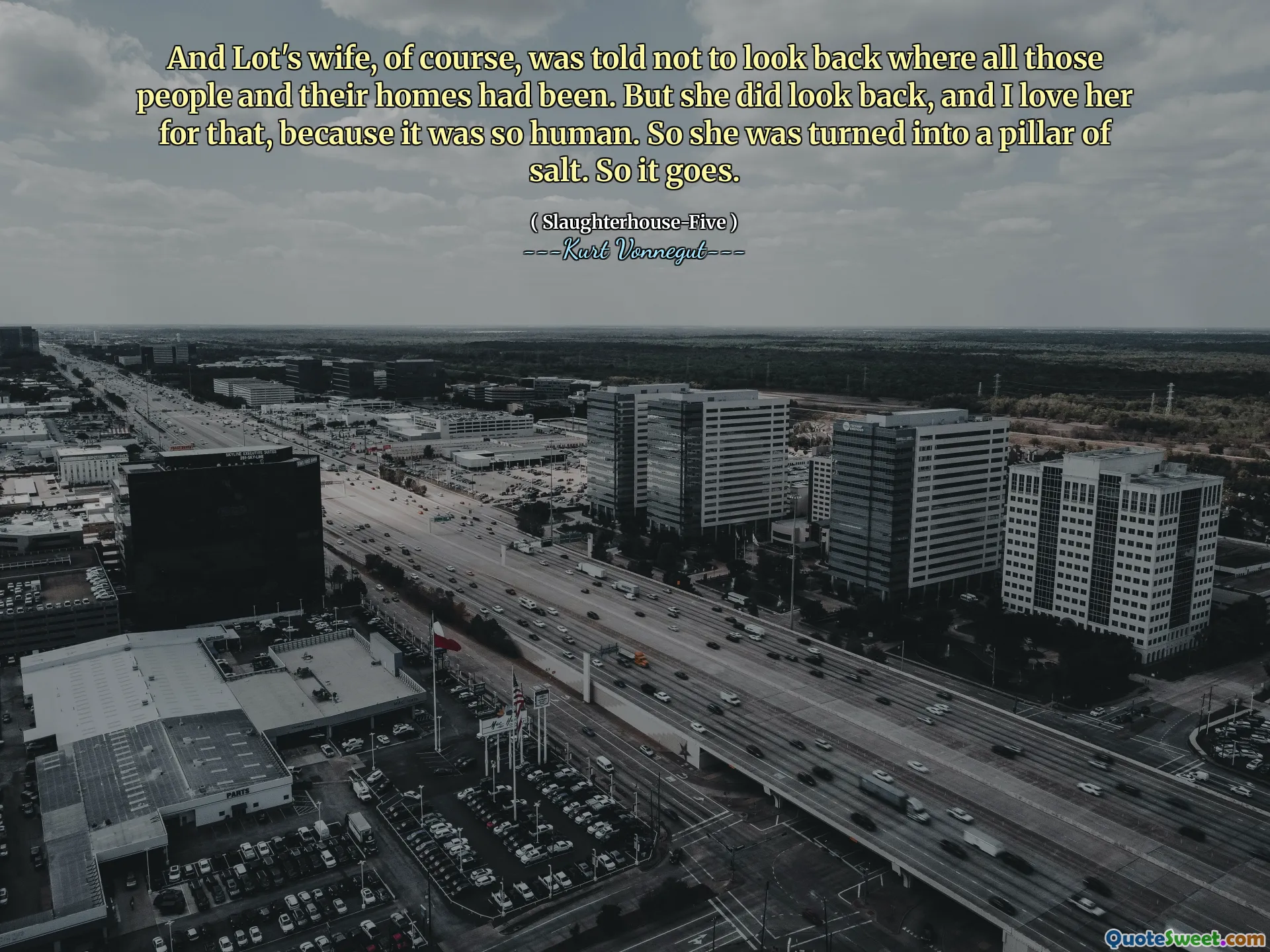
And Lot's wife, of course, was told not to look back where all those people and their homes had been. But she did look back, and I love her for that, because it was so human. So she was turned into a pillar of salt. So it goes.
The quote reflects on the story of Lot’s wife from biblical lore, highlighting her struggle with the command to not look back at the destruction of her home and loved ones. By looking back, she embodies a deeply human response to loss and attachment, demonstrating that curiosity and sorrow can often override obedience. Her transformation into a pillar of salt serves not only as punishment but also as a poignant reminder of the cost of longing for the past.
Kurt Vonnegut, in "Slaughterhouse-Five," uses this moment to illustrate the complexities of human emotion amidst tragedy. He emphasizes that acknowledging one’s humanity, even in defiance of rules, is an essential part of the human experience. The phrase "So it goes" encapsulates the inevitability of life's events, encouraging acceptance of both joy and sorrow as intertwined components of existence.
